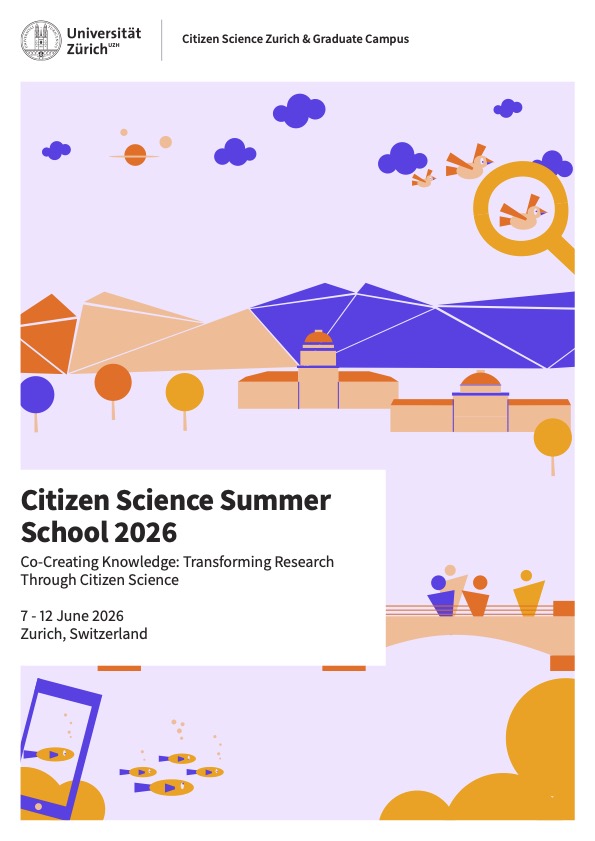Co-Creating Knowledge: Transforming Research Through Citizen Science
Research for whom? Whose knowledge counts? And how can we make research more inclusive?
Citizen Science invites us to rethink whose voices are (un)heard in research and how diverse perspectives shape the production of knowledge. Knowledge emerges in many places and forms – so how can we integrate different bodies of knowledges to co-create research practices and drive meaningful societal change? And what role does Citizen Science play in this?
By challenging the notion of expert knowledge, Citizen Science has the potential to foster genuine inclusion of voices that are too often unheard. In doing so, it has the potential to help transform research practices, contest dominant narratives, redefine who research is for, and contribute to relevant societal challenges.
Goals
At this Summer School of the University of Zurich, you will develop the skills and mindset needed to plan and carry out a Citizen Science project - whether you are an academic researcher, practitioner, or a citizen scientist. The program not only introduces methods and tools but also challenges you to reflect on whose knowledge counts, who research is for, how inclusion can be fostered, and how Citizen Science can contribute to societal change.
By participating, you will:
- Immerse yourself in current debates around Citizen Science and its role in shaping knowledge.
- Explore different approaches, methods, and tools-along with their possibilities and limitations.
- Reflect on how Citizen Science can challenge the notion of expert knowledge and foster inclusion of diverse voices.
- Evaluate how participatory approaches can enrich your own research or practice.
- Gain insights into local Citizen Science initiatives.
- Learn criteria for planning and conducting high-quality projects.
- Develop your own project plan.
- Connect with like-minded participants and learn with and from them in peer-settings.
Facts
Dates: Sun, 7 - Fri, 12 June 2026
Place and format: The Summer School takes place in Zurich, Switzerland.
Registration Fee & Accommodation
ECTS: The workload of the School is equivalent to 2 ECTS points.
Application
Who can apply:
- Master students
- Doctoral and postdoctoral researchers
- Practitioners or citizen scientists
Whether you are developing a project idea or are already further along in planning and implementation, and whether your project is participatory in nature or you aim to make it (more) participatory, you are warmly encouraged to apply.
Participants and Selection Criteria
How to apply:
Applicants are requested to provide
- a motivation letter (max. 1 page) which outlines their interest in the Summer School and their relevant experience and skills
- their current CV
- a short abstract (max. 350 words) describing their project/project idea and its status. Please make sure that the abstract is presented in a language that is accessible to people from other disciplines.
Application deadline: 15 February 2026

